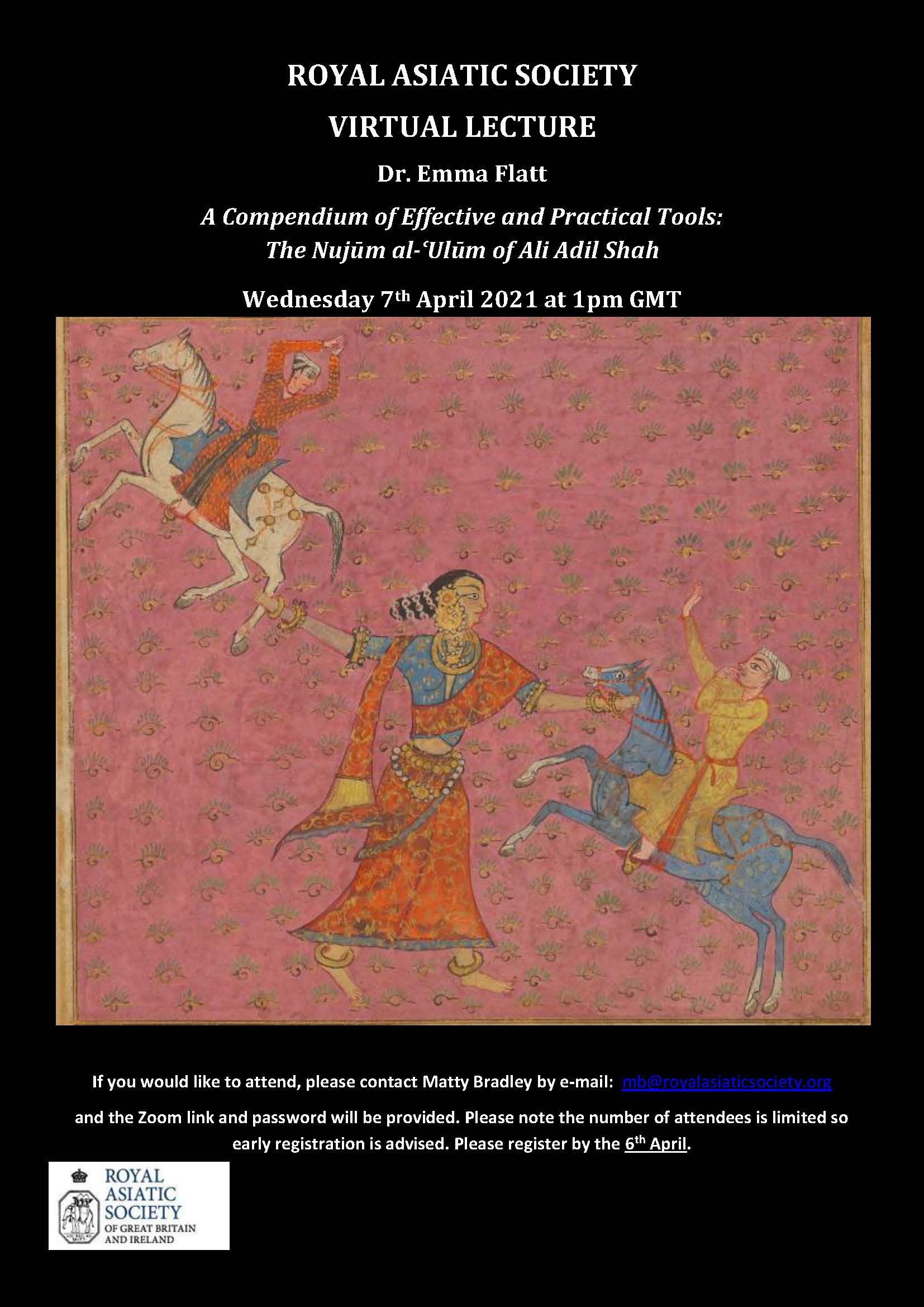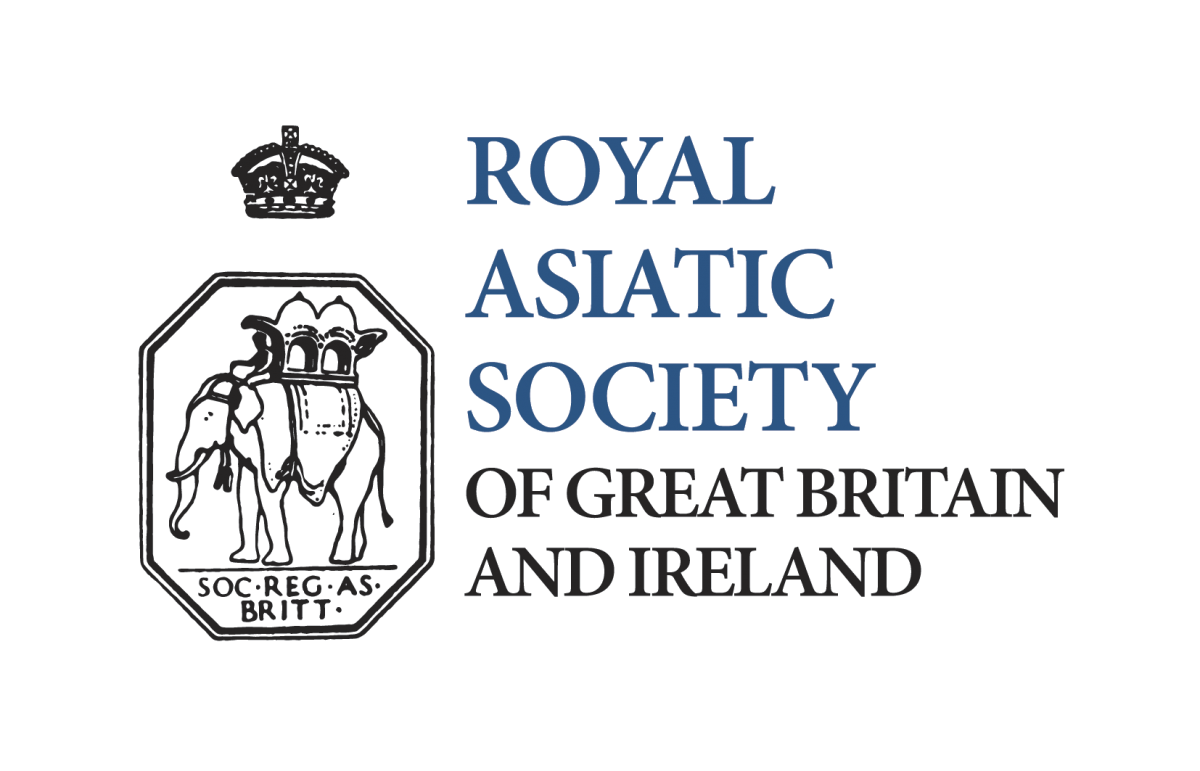Spotlight on our Collections
Last Thursday, 25 March, the Society held its second online Collections Evening, when several talks highlighted how work with the collections has continued during the pandemic. While many of our activities have been interrupted over the past year, we have tried to support ongoing academic research by answering enquiries about the collections, providing digital reproductions, and making more manuscripts and artworks available via our Digital Library, where they can also provide inspiration and enjoyment. At the same time, work on the collections has continued “behind the scenes”. The Collections Evening provided a wonderful opportunity to celebrate what it has been possible to do in difficult conditions. Attendees were therefore able to enjoy three quite different presentations reflecting the diverse nature of the Society’s holdings.
The Society initiated regular Collections Evenings back in 2017, as a way to promote ongoing work with the collections: showing how they are being used to support new research, and what we are doing to catalogue and conserve them. In particular, the Collections Evenings have provided an important opportunity to highlight the efforts of the Society’s large number of volunteers, who for years have worked with archives, manuscripts, artworks, and books, making them more accessible, better understood, and better preserved for the years ahead. On this occasion, we were delighted to welcome two heritage volunteers, Jung Min and Lily Colgan, to share their experiences working with the Society’s collections, as well as Emma Jones, the Society’s new Archivist, who joined us in October last year.

Our first speaker, Jung Min, described her work with the Transactions of the Korea Branch of the RAS. Jung explained the importance of this resource not only for understanding the work of this cultural institution, but also for assessing its broader significance in the context of Korean studies. At the beginning of the twentieth century, the newly-founded RAS Korea branch played a leading role in the development of objective historical studies of Korean culture. There were some exceptions, as discussed by Steven L. Shields in this article: http://www.koreatimes.co.kr/www/nation/2019/02/113_264327.html
Today, Transactions is a subject of historical interest in its own right, because of its contribution to the modern understanding of Korean society.

Next, Lily Colgan described the fascinating and quite extraordinary archival collections of the West brothers which document the sculptures, carvings, and other artworks in the Kanheri Caves near Mumbai. The West brothers were five railway engineers working in North-West India in the late 19th century, who became interested in numerous aspects of Indian culture and whose studies of the Kanheri caves were meticulously documented in a series of archival folders. In addition to providing an overview of this hitherto little-studied collection, Lily situated the brothers’ work within the social and intellectual culture of the time, highlighting how the collection can help us understand the connections between colonialism, archaeology, and knowledge production in India in the second half of the nineteenth century. Lily has previously written about the collection in the Society’s blog: https://royalasiaticsociety.org/celebrating-our-achievements/

Lastly, the Society’s Archivist, Emma Jones spoke about the remote cataloguing of two archival collections during the pandemic and how she adapted her working practices. This included the papers of the Israeli historian, Abraham Poliak whose publication ‘Feudalism in Egypt, Syria, Palestine and the Lebanon 1250-1900’ was published as part of the Society’s Prize Publication Fund in 1939. Further information about this collection can be found here: Cataloguing the Abraham Poliak Papers – Royal Asiatic Society
Emma illustrated the value of this collection and the importance of her role as archivist in making Poliak’s unpublished work accessible for scholarly research.

The second collection Emma discussed was The Oriental Translation Fund collection. These papers are important in highlighting the beginnings of a fund which made great works of Asian literature accessible to Western audiences. Emma concluded that both the Prize Publication Fund and Oriental Translation Fund require further exploration, particularly as we approach the Society’s 200th anniversary in 2023.

We were also delighted that the Collections Evening coincided with the publication of an exciting new article by Mathilde Renauld and Ulrich Marzolph. This is now live for RAS members to read on FirstView, the online portal providing access to articles from the Journal of the Royal Asiatic Society before they are published in the print edition. Titled “An Illustrated Shiʿi Pilgrimage Scroll in the Collections of the Royal Asiatic Society”, the article grew from a project that Mathilde completed as part of her Conservation MA at Camberwell College of Arts, when her efforts to understand and conserve the scroll led to a research collaboration with Professor Marzolph. Mathilde presented the outcomes of her conservation project at the Society’s Collections Evening two years ago, and we’re thrilled that this has now given rise to an article in JRAS. Mathilde kindly provided an overview of the conservation project in last week’s blog, which you can find here: https://royalasiaticsociety.org/conservation-of-a-19th-century-shiite-pilgrimage-scroll/

Dr. Emma Flatt Virtual Lecture:
Please join us at 1pm on Wednesday April 7th for a virtual lecture by Dr. Emma Flatt on ‘A Compendium of Effective and Practical Tools: The Nujūm al-ʿUlūm of Ali Adil Shah’.
This lecture will discuss the sciences collectively known as the ‘occult sciences’: astrology, prognostication, talismans and invocation as portrayed by the Nujūm al-ʿUlūm, an astrological encyclopaedia composed by the sultan of Bijapur, ʿAli ʿAdil Shah, in 1570.
Dr. Emma Flatt is an Associate Professor of History at the University of North Carolina, Chapel Hill and is currently on a research fellowship at the National University of Singapore.
If you would like to attend, please email mb@royalasiaticsociety.org and the Zoom link and password will be provided. We look forward to seeing many of you there!

The Society is closed over the Easter break, but staff will be available to reply to enquiries next week. Moreover, we plan to open our Reading Room as soon as possible, so stay tuned for updates in the coming weeks. For now, we would like to wish all our readers a Happy Easter.
